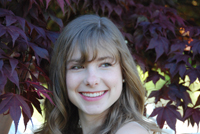Page 92 • (984 results in 0.103 seconds)
-
Focus on techniques and processes in various mediums with attention to conceptualization and craftsmanship in three-dimensional space. Metal, wood, plaster, synthetics, video, and tools used in fabrication processes. Includes a video survey of contemporary and historical artists. (4) ARTD 280 : Art Methodology and Theory - AR Explores art historical and critical methods used for the analysis of art, including formalism, iconography, iconology, economic/social contexts, psychology, feminism, and
-
Chi (Psychology) Iota Iota Iota (Triota) (Gender, Sexuality, and Race Studies) Sigma Tau Delta (English) Lambda Pi Eta (Communication) Sigma Theta Tau International (Nursing) Mu Phi Epsilon (Music) Theta Alpha Kappa (Religious Studies and Theology) Omicron Delta Epsilon (Economics) THEATRE & DANCE Fall 2024 Type 1 - remove GenEd from existing course Courses DANC 222 : Beginning/Intermediate Musical Theatre Dance - CX, FT DANC 251 : Beginning/Intermediate Ballet - CX, FT DANC 252 : Beginning
-
) tells the story of those five guys reaching the age of forty and starting to gather at least once a year, usually for golf and always for reconnecting and reminiscing. In addition to their remarkable three-plus decades of togetherness, despite several thousand miles of separation in three directions, they were a notable group: Doug Leeland, an MD; Tom Lorentzsen, a doctor of optometry; Al Hedman, a PhD in psychology; Tim Sherry, with an MA in English from the University of Chicago and an impressive
-
. Includes a video survey of contemporary and historical artists. (4) ARTD 280 : Art Methodology and Theory - AR Explores art historical and critical methods used for the analysis of art, including formalism, iconography, iconology, economic/social contexts, psychology, feminism, and structuralism/semiotics. Relates methods to broader cultural theories from Kant to Edward Said. (4) ARTD 287 : Special Topics in Art - AR To provide undergraduate students with new, one-time, and developing courses not yet
-
undergraduate students to relate theory and practice in a work situation. The title will be listed on the student term-based record as Intern: followed by the specific title designated by the instructor in consultation with the student. (1 to 12) 12 EDUC 497 : Special Project Individual study and research on education problems or additional laboratory experience in public school classrooms. Prerequisite: consent of the dean. (1 to 4) Educational Psychology (EPSY) - Undergraduate Courses EPSY 361
-
of action when constructing a biome that can flourish and prosper together.I’d like to thank my capstone professors, Dr. Adela Ramos and Dr. Rose McKenney for their guidance and also my mentors Dr. Michael Behrens and Dr. Troy Storfjell for their wisdom. 3:25pm, Into the Outdoors: Educational and Developmental Benefits of Outdoor Classrooms Juliana Rendler Pairing the disciplines of developmental psychology and education to analyze the potential benefits of outdoor educational experiences and
-

one day I might become a nurse educator. However, prior to further exploring the option of graduate studies I would like to gain experience working in the field. Kelsey Yonce – Bachelor of Arts in psychology, minor in sociology Why PLU? To be completely honest, I chose PLU because of its proximity to my high school boyfriend who was attending UPS. Like most high school relationships, that one didn’t last past graduation, so it’s definitely not a method I recommend for choosing a university! Kelsy
-
World Cultures ANTH 352: Anthropology and Age ANTH 387 353: Special Topics: Veils, Saris, and Sweatpants: Clothing and Material Culture HIST 359: History of Women in the U.S. POLS 287: Special Topics: Marriage Equality and the Supreme Court PSYC 370: Gender and Sexuality PSYC 375: Psychology of Women SOCI 210: Gender and Society SOCI 494: Gender and Violence School of Arts and Communication ARTD 490: Gender and Art COMA 303: Gender and Communication School of Education and
-
stressed evolutionary continuity in the emergence of human intelligence. Increasingly, researchers are focusing on understanding animal minds and thought as distinct from human thought. As Marc D. Hauser, professor of psychology and neuroscience at Harvard, writes in Wild Minds: What Animals Really Think (Henry Holt 2000), “We share the planet with thinking animals . . . . Although the human mind leaves a characteristically different imprint on the planet, we are certainly not alone in this process
-
of self, rather than a dreamed-of salary. In short, discovery of the authentic I inspires professional creativity, and compassionate, reflective citizenship.Creating an environment that promotes lifelong honing of the I is what liberal education is all about. As such, the undergraduate “liberal arts” skills that students learn, be they history, biology, a foreign language, or psychology, should in praxis be a mere framework through which an attentive teacher lays a path for students to discover
Do you have any feedback for us? If so, feel free to use our Feedback Form.


